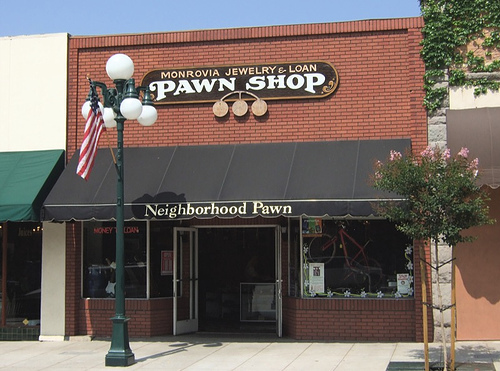What You Need to Know About Pawn Loans
 Popular reality shows like Pawn Stars have given a new face to pawn brokers across the country. An industry which was once viewed skeptically as a collection of dusty downtown corner shops has become a familiar and lucrative industry thanks to the glamorous lens of television.
Popular reality shows like Pawn Stars have given a new face to pawn brokers across the country. An industry which was once viewed skeptically as a collection of dusty downtown corner shops has become a familiar and lucrative industry thanks to the glamorous lens of television.
As the effects of the recession drag on for some people and families, pawn shops sometimes crop up as a potential option for tight spots. But how does a pawn loan really work and is it worth the risk? Here are some basic answers about visiting a pawn shop.
How the Process Works
Pawn shops exist primarily to offer collateral loans. This is how they make the bulk of their profits, although sales might represent a small portion of their income. Pawn loans are easy to secure because they do not require a credit check, bank account or co-signer. Instead, a customer will present a valuable item and a valid ID and receive a portion of the item’s retail value with an agreement to pay it back with interest in order to regain possession of the item. Most states regulate this process limiting the amount of interest and other factors.
Pawn loans are different from most other agreements because they are based on collateral. Rather than credit scores being affected by a defaulted loan, the pawn loan is paid in full when the shop receives full ownership of the item.
What Can You Pawn?
You can really take any item of value over to your local pawn broker. But typically, pawned items are portable and easily displayed in a case in the shop. Some of the most common items to present to a pawn broker include:
- Jewelry
- Musical instruments
- Electronics
- Power tools
- Sports memorabilia
There are some other surprising items such as wedding dresses and video games. Other companies like TitleBucks.com will accept an automobile title as collateral. But these are only sought out by a few pawnshops which have a specialized knowledge in these unusual markets.
What you decide to pawn will really depend on your situation. If you feel confident that you will quickly be able to repay the broker, then you might pawn a more significant item, such as personalized family jewelry. However, if you are more desperate and less certain about the situation, then you may not want to take the risk that you will lose a precious memento. And it is important to remember in both situations that you are potentially agreeing to part with the item you pawn.
Keeping the Real Cost in Mind
Another aspect of pawn loans is the actual cost of finance charges. Remember that most pawn loans express a monthly interest rate and not an annual percentage. So a 20% interest rate multiplied by twelve months is actually a 240% annual rate. And in those terms, you may decide that the loan isn’t as helpful as it seemed at first.
Many brokers also charge other fees. So it is imperative to ask for these costs to be defined upfront so that you can establish a clear picture of how much it will cost to borrow the money. In the end, pawn loans probably will not better your financial situation. But they help because they exist to provide quick cash in a short-term situation.
With these facts and a basic understanding of the process, potential pawn customers should be better able to determine if a pawn loan will truly benefit them.
Image from www.environmentalgraffiti.com
Category: Loans






